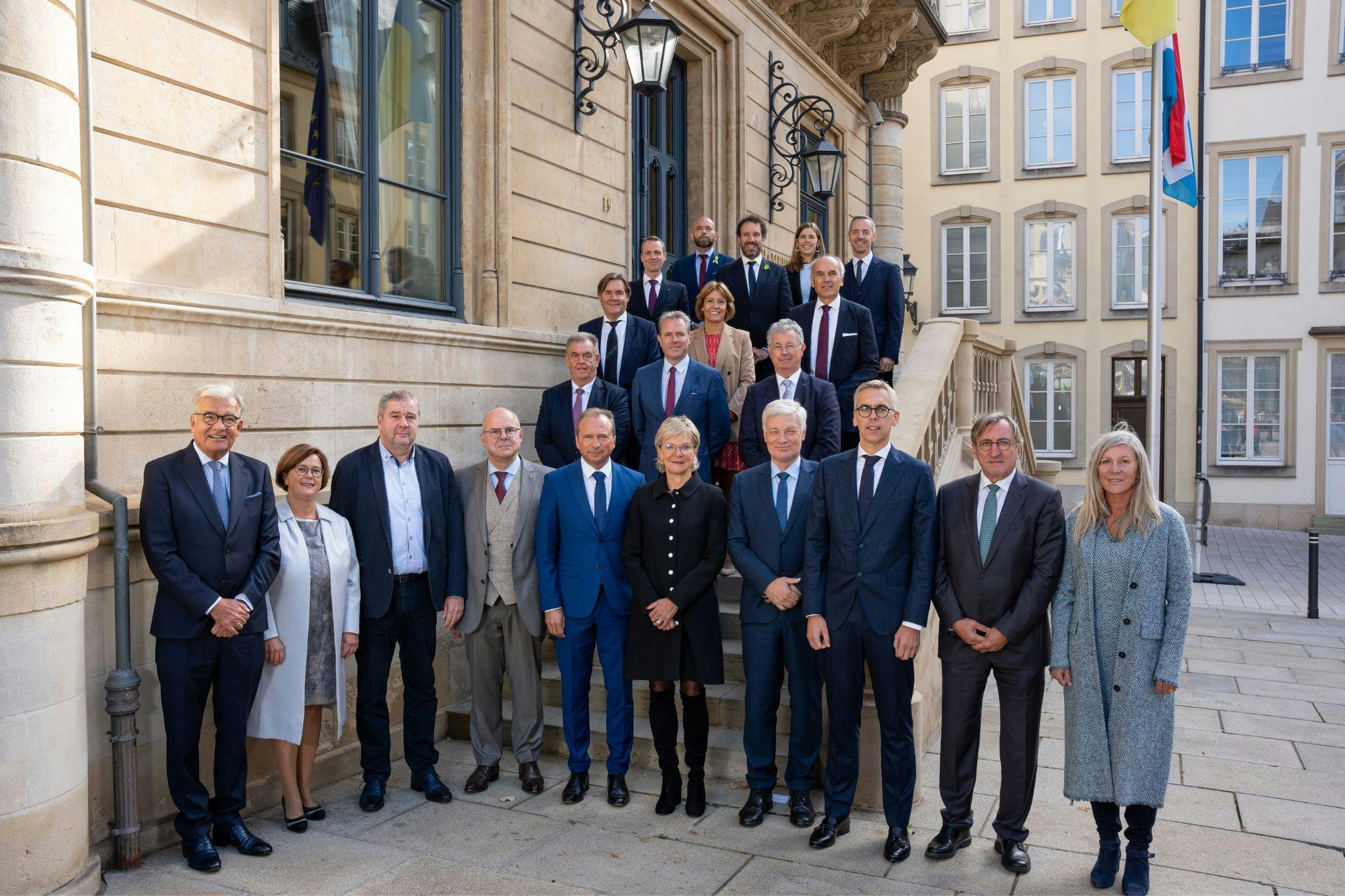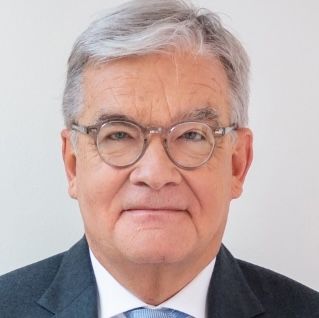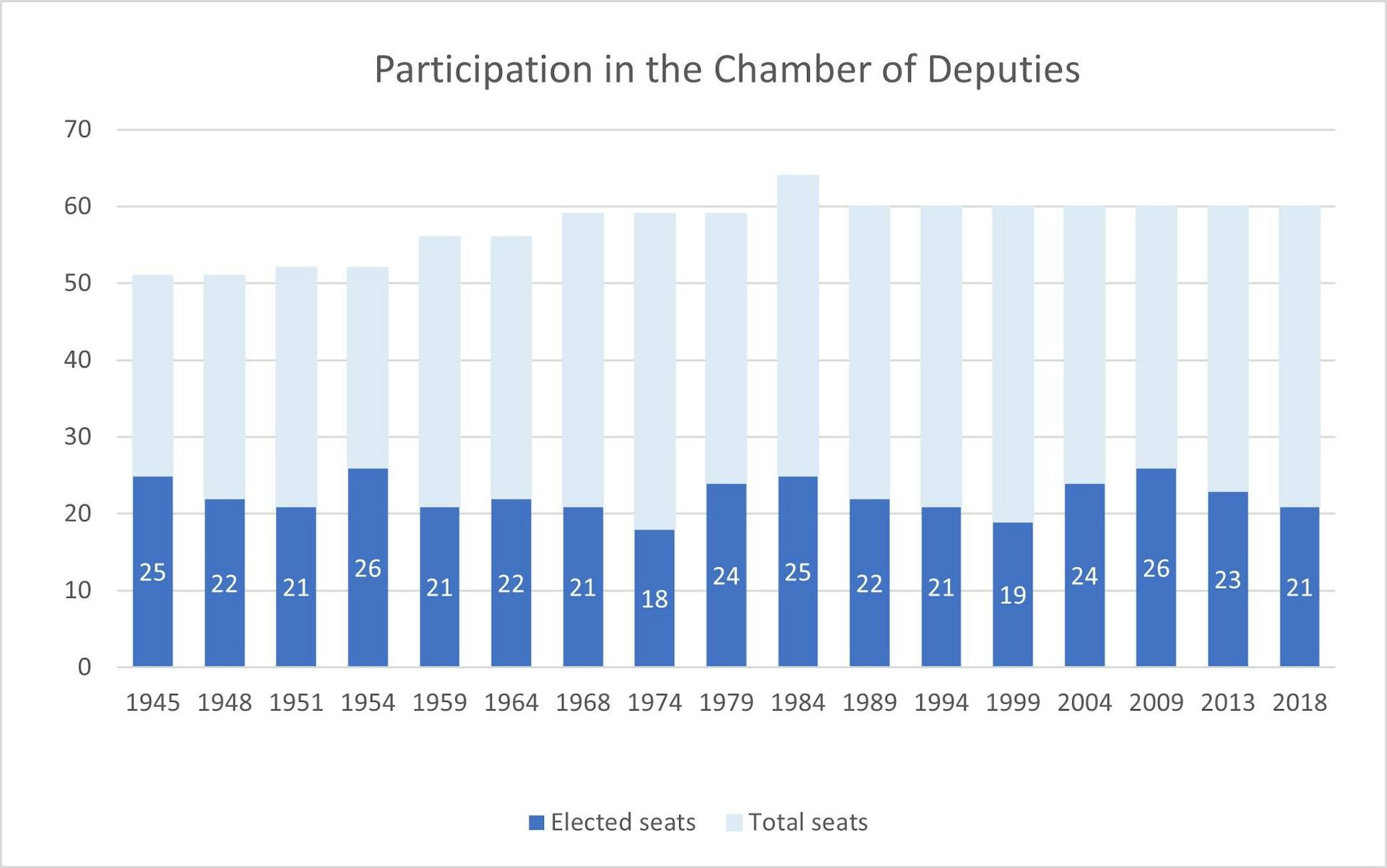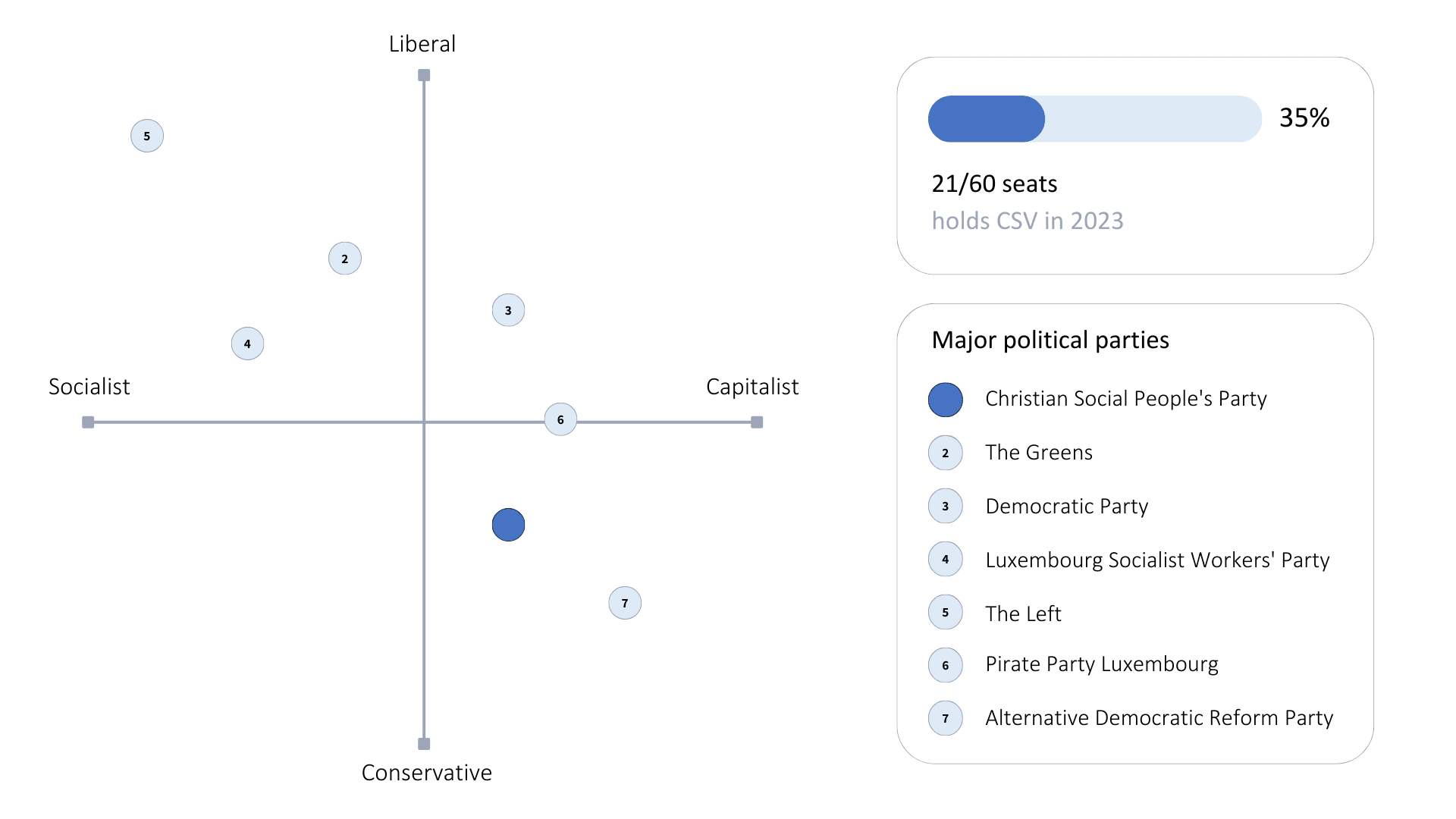
Christian Social People's Party in Luxemburg — Chrëschtlech Sozial Vollekspartei (CSV)
In this article, we are going to be covering all the significant characteristics of the CSV party in Luxembourg, diving into the structure, political agenda, and major leadership figures who have contributed to the party’s lasting legacy and public support.
The Christian Social People's Party (CSV) was founded back in 1944 as a conservative fraction guiding its social policies through Christian moral principles. After its first electoral victory in 1945, it has remained the most supported political party in Luxembourg even nowadays.
Christian Social People's Party at a glance
The CSV is currently not in alignment with the present government, which consists of a coalition between the Democratic Party, the Luxembourg Socialist Workers' Party, and the Greens. This opposition stems from a combination of differing ideologies, distinct priorities, and opposing views on the right socio-economic strategies.
In the legislative arena, CSV currently holds 21 seats in the Chamber of Deputies and 2 seats in the European Parliament, making it a major party. The number of seats a party holds can influence the policy direction and government formation.
Although the Christian Social People's Party (CSV) has been the most prominent party since its inception, it found itself in opposition to the government in 2013 for the second time in its history. The year 2018 was particularly challenging, as it marked the lowest level of public support for the party since its establishment. However, despite these setbacks, the CSV continues to be the favored party in Luxembourg, garnering reassuring public support.
Political Guide

Structure and representativeness
The Christian Social People's Party of Luxembourg is the largest political party in the country with 10,000 members. Claude Wiseler leads the party as its president, and he is joined by Elisabeth Margue, who holds the position of co-president.
The inner life of a party
Central to the party's decision-making process is the National Congress which meets once a year and serves as the supreme governing body of the CSV party in Luxembourg. Comprising all party members, the Congress plays a pivotal role in defining the party's political strategies and overarching goals. During their meetings, key party positions are elected, ensuring a democratic representation of the membership. The operations and procedures of the party are governed by its statutes.
National level




Regional level


Municipal level
Within the party, several grassroots sections operate, each tailored to address unique challenges. These sub-organizations delve into various municipal topics, spanning from political to non-political concerns.
Electoral system divides the country into four constituencies. The number of seats allocated to each constituency is proportional to its population
People and influence in the party
Key personnel profiles
The Christian Social People's Party boasts a diverse array of skilled and seasoned members, each bringing their distinct perspectives and insights to the collective.
Leaders of the party




Other key members of the party




The CSV is the largest party in the Chamber of Deputies, though it did not get a place in the current coalition government. In the 2018 legislative elections, the party secured 28.3% of the popular vote, solidifying its role as a major political force in the country. In 2023, during General Elections CSV got the majority of votes, 1,099,536 people have voted for them. That corresponds to the 29.22% of all the votes. They have kept their 21 seats at the Chamber.

In the 2019 European elections, CSV secured two out of six seats in the European Parliament, which is held by Christophe Hansen and Isabel Wiseler-Santos Lima, representing the party's interests at the European level. These seats are divided among member countries based on their population size.
CSV's current political stance
The Christian Social People's Party in Luxembourg is positioned on the center-right of the political spectrum. It is often described as both Christian Democratic and conservative because it emphasizes both social principles derived from Christian teachings and traditional values. The party supports a mix of social welfare policies and individual freedoms, emphasizing the importance of family, tradition and moral values in society.
The party and its cornerstones
Party views visualization

CSV advocates for embracing digital advancements. They endorse making administrative tasks simpler through digital means. Additionally, they encourage businesses to move to digital platforms, use blockchain technology, and integrate artificial intelligence.
Political program
The Christian Social People's Party (CSV) has a diverse set of policy proposals aimed at enhancing the living standards of Luxembourg's residents. Their agenda includes tax reductions, better work-life balance for parents, and advocating for increased housing construction in Luxembourg.
Viewership of the Christian Social People's Party (CSV) political program can be accessed at their official website. Below, you will find a summary of the most intriguing policies and how they're explained by the party.
One of the most significant challenges to maintaining social cohesion in Luxembourg is the rising cost of living. This policy seeks to address this issue by lowering overall taxation, abolishing wealth and inheritance taxes, and adjusting the tax brackets for inflation. The goal is to enable Luxembourg residents to keep a larger portion of their income.
To enhance parental freedom and flexibility, the CSV in Luxembourg is proposing several privileges for parents. The objective of this policy is to assist parents in achieving a more balanced work-life equilibrium.
Providing increased support to young professionals through tax reductions during their initial years of employment is designed to help people accommodate the economic environment of the country smoothly.
Affordable housing is a significant challenge for residents of Luxembourg. To address this issue and make housing more affordable, the policy aims to balance the relationship between supply and demand, ultimately stabilizing market prices. To accomplish this ambitious goal, the Christian Social People's Party (CSV) intends to lower VAT rates for the construction of rental housing and incentivize investors to invest their capital in the development of additional rental housing units.
In the realm of healthcare, the CSV party seeks to enhance access and quality of care.
Additionally, there is a commitment to emphasize preventive healthcare strategies to promote overall well-being.
Party representation
The CSV Party in Luxembourg proudly stands as a champion of conservative values and a strong advocate for the cause of responsible governance. Its core mission revolves around upholding traditional principles and promoting sustainable development as a central pillar of its political ideology. They primarily represent individuals who share their strong values and philosophical approach to addressing a wide range of challenges, both domestic and international.
CSV recognizes the importance of crafting nuanced policies that balance conservative principles with modern challenges and offer pragmatic solutions that resonate with a broad spectrum of citizens, regardless of political affiliation.
Electorate demographics
The Christian Social People's Party (CSV) in Luxembourg has traditionally drawn its support from a variety of demographic groups due to its long-standing role in the country's political landscape. Historically, the CSV has been one of the dominant parties in Luxembourg.
The party's appeal lies in its belief that these complex issues cannot be adequately resolved through strict adherence to a one-dimensional political ideology.
| CSV | LSAP | DP | Greens | |
| Environment | Low | Low | Middle | High |
| Electorate | Older | Older | Young | Young |
| Trade unions | Yes | Yes | No | Yes |
| Secularism | No | Yes | Yes | Yes |
Christian Social People's Party (CSV) office is located in Luxembourg City
- Office location: 4, rue de l'Eau,Luxembourg
- Phone number: (+352) 2 25 73 11
- Official website: csv.lu
Brief history of the party
TIn the CSV party's 100-year history, Luxembourgers have placed their trust in it to lead state affairs for nearly 90 years.
The birth of the party and first electoral victory: 1914-1945
- The Christian Social People’s Party (CSV) has historical roots dating back to the establishment of the Party of the Right on January 16, 1914. Its evolution into the CSV, as it is known today, occurred in 1944.
- In the first elections following the Second World War, the CSV secured 25 of the 51 seats in the Chamber of Deputies, narrowly missing an absolute majority by just one seat.
Rise in governmental collaboration: 1945-1974
- From 1945 to 1974, the Christian Social People’s Party (CSV) was a mainstay in the government, predominantly in collaboration with the Democratic Party (DP). This era was characterized by consistent economic growth and social stability.
- In the 1950s, the Christian Social People’s Party (CSV) took steps towards democratization by integrating both the Youth and the Women's sections into the party structure.
First time opposition to the government: 1974-1995

- In 1974, the Christian Social People’s Party (CSV) faced opposition for the first time, as the Democratic Party formed a coalition with the Luxembourg Socialist Workers' Party.
- A decade later, in 1984, Jacques Santer rose to the role of Prime Minister and facilitated a coalition between the CSV and the Luxembourg Socialist Workers' Party (LSAP), which was then the second-largest party in the legislature. This partnership endured until the culmination of his leadership in 1995.
- Subsequently, in 1995, Jean-Claude Juncker succeeded Jacques Santer as Prime Minister, while Santer advanced to the position of President of the European Commission.
Bettel government and current support of CSV: 2013 to now
- After the 2013 elections, the Christian Social People's Party (CSV) moved to the opposition, marking only the second instance in its history. The Democratic Party's Xavier Bettel assumed the role of Prime Minister, forming a coalition with the Luxembourg Socialist Workers' Party and the Greens. This event was significant as it represented the first-ever three-party coalition in Luxembourg's history.
- While remaining the biggest political party in Luxembourg, 2018 marked the lowest point in CSV’s public support.
- Even with limited public backing, the Christian Social People's Party (CSV) maintains a notable presence in political assemblies. They hold 21 of the 60 seats in the Chamber of Deputies and 2 of the 6 Luxembourg seats in the European Parliament.
Frequently Asked Questions (FAQ)
What is the CSV party's presence in the Chamber?
The CSV party, also referred to as the Christian Social People's Party, has been a dominant force in the Chamber for a number of years. Historically, they have held numerous seats and frequently led coalition governments or acted as the primary opposition. Their substantial presence attests to their widespread support and influence in national politics.
Currently, they hold the majority of seats in the Chamber of Deputies — 21 seats out of 60, and 2 seats in the European Parliament representing Luxembourg.
What is the primary agenda of the CSV party?
The CSV party's priorities for the 2023 elections, as outlined on their official website, include taxation, housing, climate and economical issues.
They advocate for more purchasing power, fewer taxes, and adjustments to the tax table to counter inflation. They also propose higher tax allowances for families with children and oppose inheritance and wealth taxes.
The party emphasizes faster construction procedures, fewer environmental compensation measures in construction areas, and motivating private actors to invest in rental housing.
They support European climate targets and aim for a significant expansion of renewable energies by 2030. They also promote efficient procedures for energy transition and openness to new technologies.
The CSV focuses on sustainable and inclusive growth, reducing administrative burdens by 20%, and promoting Luxembourg as a hub for green finance and other sectors.
How has the CSV party impacted national policies?
Given their longstanding presence in the Chamber, the CSV party has played a pivotal role in shaping national policies. Their influence is evident in their commitment to strengthening the economy, promoting renewable energy, enhancing housing solutions, and refining taxation policies.
Source: en.wikipedia.org, en.wikipedia.org, en.wikipedia.org, en.wikipedia.org, delano.lu, en.wikipedia.org, www.vdl.lu, en.wikipedia.org, walen2023.csv.lu, en.wikipedia.org, en.wikipedia.org, en.wikipedia.org
We took photos from these sources: CSV website; Gouvernement.lu, author Yves Kortum; CSV Facebook official page; Wikimedia